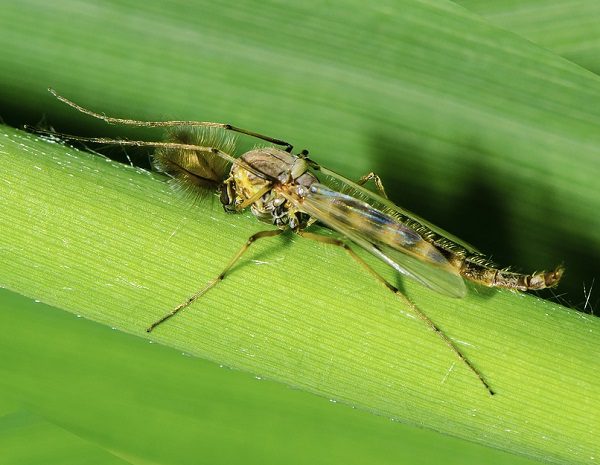TOWSON, MD—Beginning this week, the Baltimore County Department of Environmental Protection and Sustainability (DEPS) will begin periodically treating the upper section of Back River to suppress nuisance midge populations. The goal is not to eliminate all midges, but to reduce their population to tolerable levels. This Baltimore County Nuisance Midge Control Program is being conducted with matching funding support from the Maryland Department of Agriculture.
Trained, certified technicians from the County’s contractor, Helicopter Applicators Inc., will spray Bti, a naturally-occurring bacterial larvacide from a low-flying helicopter every four to five weeks until fall, depending on need as indicated by DEPS’ biological monitoring of the midge larvae abundance. Spraying will take place during daylight hours, as weather and tidal conditions allow, and the contractor will actively avoid boaters and human activity in and around the water.
DEPS will treat a 1200-acre open water area of upper Back River from Walnut Point northwest to Powell’s Point and the I-695 crossing, including portions of Deep Creek, Duck Creek, and Bread and Cheese Creek. The County’s vendor, Helicopter Applicators Inc., will apply a Bacillus thuringiensis israelensis (Bti)-based larvacide, Bactimos WDG, from a helicopter (black colored Bell, Model 206 L-3, tail number N651HA). The application helicopter will work out of the Essex Skypark Airport, and will be calibrated to fly 50 miles per hour with a 35-foot swath at a height approximately 20 feet above the surface of the water. The application rate will be five gallons per acre using three straight stream nozzles on each side of the aircraft.
Bti is a naturally occurring bacteria that is found in soil, and is only harmful to certain organisms, specifically midge, black fly and mosquito larvae and a few other aquatic flies, according to Baltimore County officials. It does not harm people, fish, crabs or other aquatic invertebrates. Midges are small non-biting aquatic flies that often swarm near water or marshy areas where they breed. More information about Bti is available on the Maryland Department of Agriculture (MDA) website.
The treatment will take place pending County Council approval of an agreement with the vendor.
Photo via Pixabay
Do you value local journalism? Support NottinghamMD.com today.

